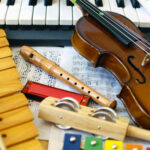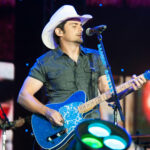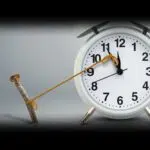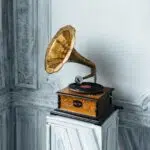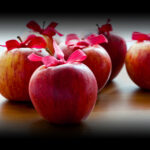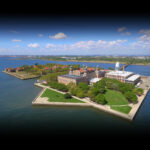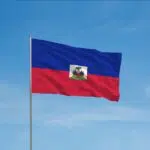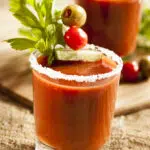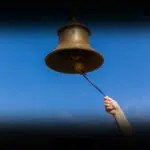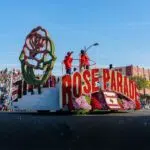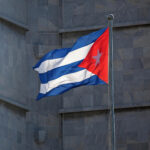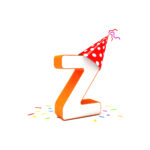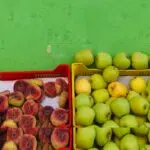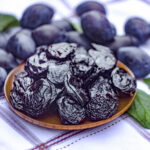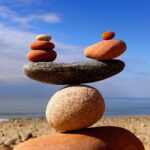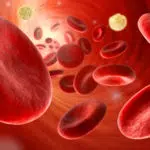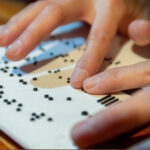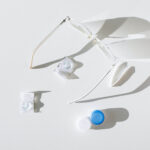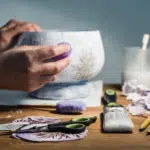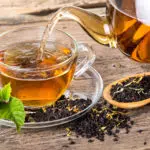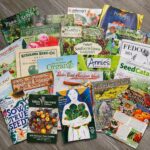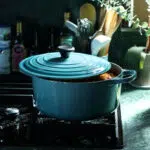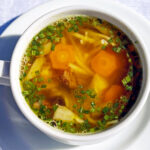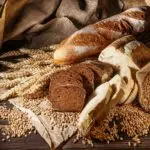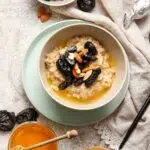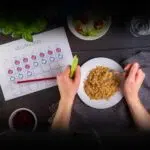National Polka Month is in January, and we can already hear the sound of the accordion. The thought of polka immediately makes us want to dance — especially since it’s January and we could use the warm-up.
National Polka Month encourages us to get out on the town to support polka shows. Both dance and genre of music, polka has stood the test of time. How? you ask. Because it’s good music, completely free of artifice or pretense. Polka is music in its purest, happiest form.
History of National Polka Month
Polka is a form of dance music that originated in Bohemia, an area in the Czech Republic. Polka music became popular in the United States, thanks to Eastern European communities who settled in the Midwest and Great Lakes region.
The International Polka Association or the IPA was instrumental in conceptualizing National Polka Music Month in 1968. The idea was to promote polka music in January, a relatively quiet month for music in Chicago. The rest of the year was usually chock-a-block with music events, and polka music was sure to fly under the radar.
In support of January being National Polka Music Month, polka musicians played at the Polonia ballroom in Chicago every Friday night. These Friday evenings featured different polka forms and, of course, the lively polka dances.
Polka is often synonymous with the German Oktoberfest, but it’s much more popular in the Czech and Slovakian regions. You’ll also find that European polka is far more traditional than American polka, which contains several influences.
The accordion is the star of every polka band. It brings much of the signature polka sound we love so much. Polka bands can also include clarinets, fiddles, guitars, bass, and percussion. Basic polka has a 2/4 rhythm that’s amazingly upbeat and perfect for dancing. Song lyrics often talk about love and loss, even food.
The United States has three mainstream styles of polka music: Polish, Czech, and German. The Polish style originated in Chicago and has two sub-styles: the Chicago Honky and the Chicago Push.
Despite the passage of time and changing music tastes, polka has survived. People all over the world appreciate it. Many bands have combined polka with other music styles and made it work beautifully. Every January, Polka Music Month preserves the cultural heritage of polka music and honors its musicians.
National Polka Month timeline
Anna Slazak, a Czech farm girl, creates the first 'polka step,' which she calls 'Madera' for its liveliness.
Anna dances the Madera to a folk song titled ‘Strycek Nimra Koupil Simla,’ or ‘Uncle Nimra Brought a White Horse.’
Polka music and dancing become popular in the ballrooms of Prague.
Musicians in Chicago celebrate the first Polka Music Month in January.
National Polka Month FAQs
What is National Polka Day?
August 9 is National Polka Day. The day celebrates the lively dance form that originated in Bohemia during the 1800s.
Is Polka from the Czech Republic?
Polka music and dance originated in the Czech Republic. People believe that a farm girl named Anna Slazak created the first polka step in the 1800s. Soon, the dance became popular, reaching Prague ballrooms in 1835 and Paris ballrooms by 1840.
Why is polka music popular?
People around the world love polka. Most performers in this genre create music that appeals to larger audiences. Polka musicians effortlessly combine folk, classical, or contemporary elements to their performance.
National Polka Month Activities
Attend a polka festival
Start the year with double the energy at a polka festival near you. The lucky folks in Chicago can look up bands performing as part of the IPA festival. Or, make your way to the Polka Festival in Ennis, Texas, featuring live bands, parades, dances, and more.
Learn how to polka
Polka dance is one of the liveliest forms there is. January’s a good month to learn basic polka. Sign up for polka classes or a polka event. You can even find an online video and learn the steps at home.
Listen to polka music
Begin your polka music education with the genre’s best musicians. Check out the music of Frankie Yankovic, Walter Ostanek, and Eddie Blazonczyk.
5 Facts About Accordions That Will Blow Your Mind
Officially the best instrument
Detroit, Skokie, and St. Paul have recognized the accordion as their official city instrument.
Accordions are valuable and very expensive
Most accordions are handcrafted by skilled artisans who have been making the instruments for generations.
Italy, the heart of accordion manufacturing
You can find the world’s leading accordion manufacturers in a town called Castelfidardo, located in the Ancona province.
It has a nickname
In the United States, musicians affectionately refer to the accordion as 'the squeezebox.'
A truly international instrument
Accordion music is popular in countries like the United States, Mexico, Europe, Brazil, Colombia, and Canada.
Why We Love National Polka Month
A celebration of Czech heritage
Polka music may sound effortless but is rooted in rich history and tradition. Polka Music Month offers insight into the genre and also to Czech heritage.
The energy
A month-long music festival is always fantastic. And when there’s polka music involved, celebrations reach ultimate levels. We love the energy and zest for life that polka brings.
January celebrations
You know how the festive spirit tends to fade away right after New Year's Day? Well, it doesn’t need to, thanks to Polka Music Month. We say it’s January, and the party’s just getting started.
National Polka Month dates
| Year | Date | Day |
|---|---|---|
| 2026 | January 1 | Thursday |
| 2027 | January 1 | Friday |
| 2028 | January 1 | Saturday |
| 2029 | January 1 | Monday |
| 2030 | January 1 | Tuesday |

